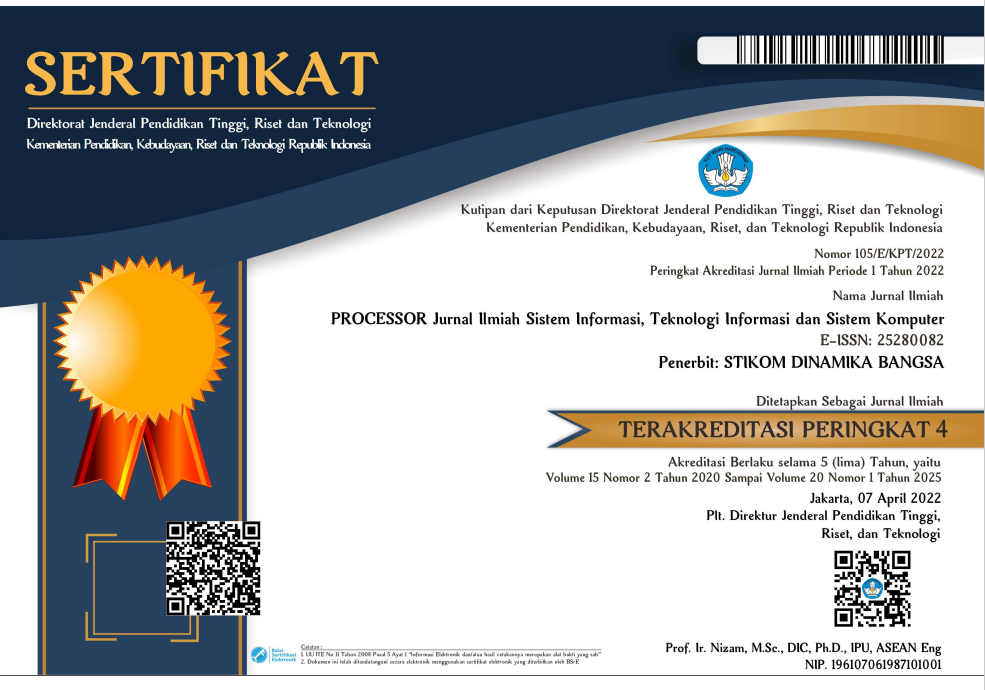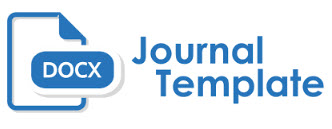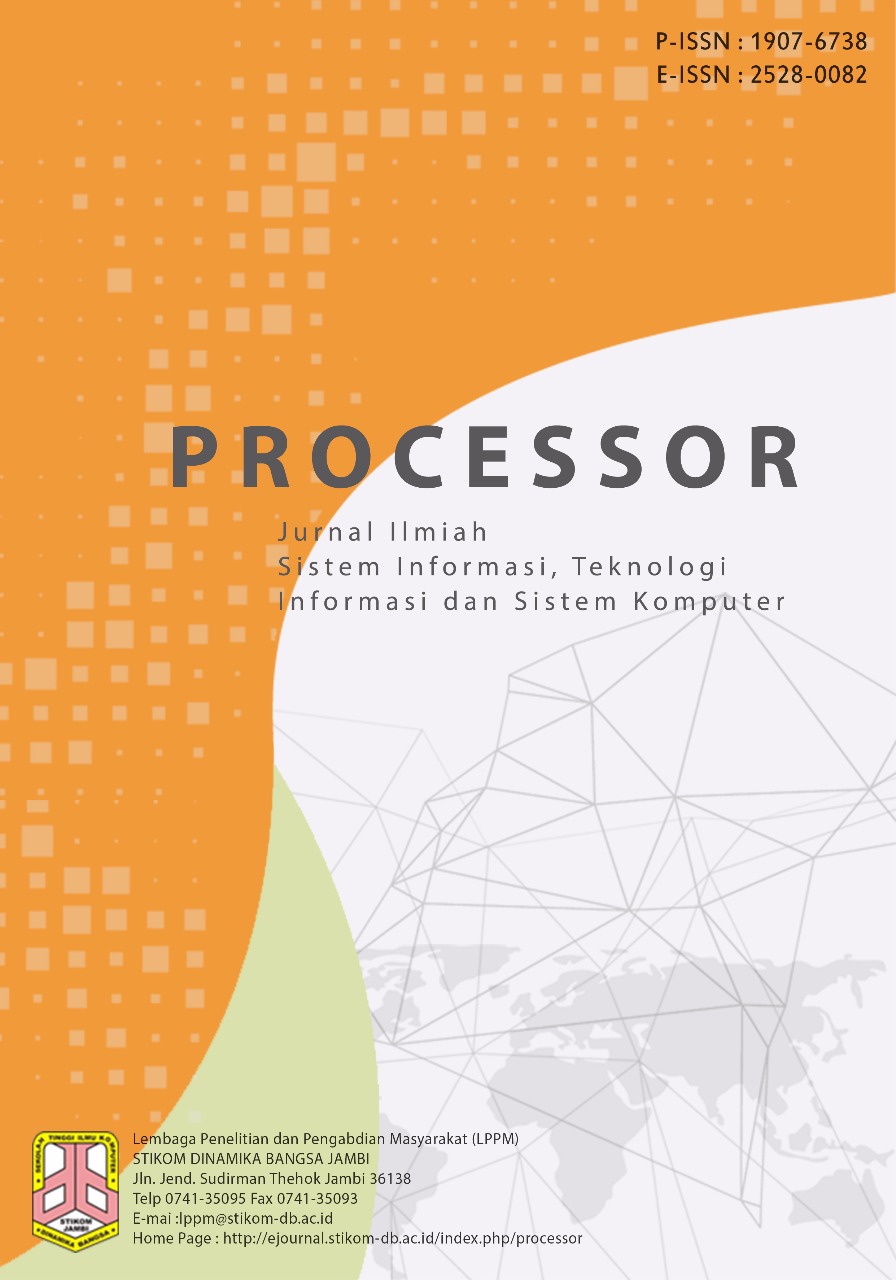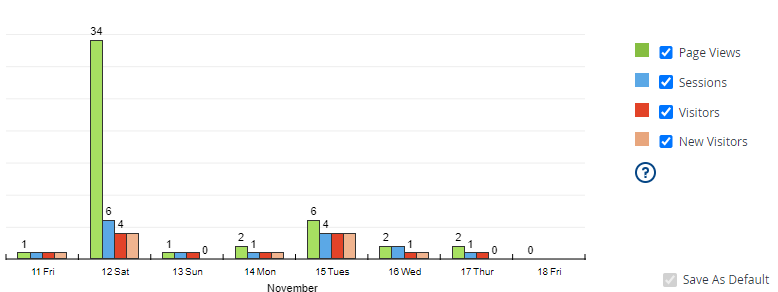Perancangan Aplikasi Monitoring Bimbingan Tugas Akhir dengan Menggunakan Metode Agile di Perguruan Tinggi
DOI:
https://doi.org/10.33998/processor.2024.19.1.1497Keywords:
Monitoring Tugas Akhir, Metode Agile, Perguruan TinggiAbstract
Thesis advisory is an essential process in students' academic journey; however, issues often arise during its implementation, such as the forgery of the advisor's signature and the advisors being unaware of the progress of the thesis.This study aims to investigate the implementation of the Agile methodology in the context of information system development, with a specific focus on the final thesis advisory process within higher education institutions. The Agile methodology, with its iterative approach and active involvement of relevant stakeholders, can provide greater flexibility in dealing with changing requirements, which often arise in the final thesis advisory process. Furthermore, this methodology enables the creation of sustainable information systems and improved testing, which are essential elements in ensuring higher quality and user satisfaction. This research involves an analysis of the enhancement of student thesis monitoring in the higher education environment. The results of this study are expected to provide valuable insights for higher education institutions looking to improve their final thesis advisory processes by leveraging the Agile approach in information system development. Additionally, this research may contribute to a deeper understanding of the effectiveness of the Agile methodology in the higher education environment, aiming to improve efficiency, quality, and satisfaction among users, including program heads, faculty, and students in the final thesis advisory process.
Downloads
References
A. C. Amorim, M. Mira da Silva, R. Pereira, and M. Gonçalves, “Using agile methodologies for
adopting COBIT,” Inf. Syst., vol. 101, no. xxxx, p. 101496, 2021, doi: 10.1016/j.is.2020.101496.
N. Komalasari, D. F. Murad, D. Agustine, M. Irsan, J. Budiman, and E. Fernando, “Effect of education,
performance, position and information technology competency of information systems to performance of
information system,” 2018 Int. Semin. Res. Inf. Technol. Intell. Syst. ISRITI 2018, pp. 221–226, 2018,
doi: 10.1109/ISRITI.2018.8864437.
Hendri, “Pengembangan Sistem Manajemen Antrian Berbasis E-Kiosk Dengan Metode Service Oriented
Computing Di Perguruan Tinggi,” Indones. J. Comput. Sci., vol. 12, no. 2, p. 1364, 2023.
H. Hans, A. Kampker, M. Kehrer, J. Gerz, M. Sergio, and E. Zancul, “Bridging Uncertainty
Management and Requirements Engineering in R & D projects : a case in the e-mobility sector,”
Procedia CIRP, vol. 119, pp. 321–326, 2023, doi: 10.1016/j.procir.2023.02.139.
H. Hajjdiab and Al Shaima Taleb, “Adopting Agile Software Development: Issues and Challenges,” Int.
J. Manag. Value Supply Chain., vol. 2, no. 3, pp. 1–10, 2011, doi: 10.5121/ijmvsc.2011.2301.
A. Rasheed et al., “Requirement Engineering Challenges in Agile Software Development,” Math. Probl.
Eng., vol. 2021, 2021, doi: 10.1155/2021/6696695.
E. Bjarnason, M. Unterkalmsteiner, M. Borg, and E. Engström, “A multi-case study of agile
requirements engineering and the use of test cases as requirements,” Inf. Softw. Technol., vol. 77, pp. 61–
, 2016, doi: 10.1016/j.infsof.2016.03.008.
I. Inayat, S. S. Salim, S. Marczak, M. Daneva, and S. Shamshirband, “A systematic literature review on
agile requirements engineering practices and challenges,” Comput. Human Behav., vol. 51, pp. 915–929,
, doi: 10.1016/j.chb.2014.10.046.
M. U. Malik, N. Chaudhry, and K. Malik, “Evaluation of Efficient Requirement Engineering Techniques
in Agile Software Development,” Int. J. Comput. Appl., vol. 83, no. 3, pp. 24–29, 2013, [Online].
Available: http://citeseerx.ist.psu.edu/viewdoc/download?doi=10.1.1.402.1692&rep=rep1&type=pdf.
T. Kamal, Q. Zhang, and M. A. Akbar, “Toward successful agile requirements change management
process in global software development: A client-vendor analysis,” IET Softw., vol. 14, no. 3, pp. 265–
, 2020, doi: 10.1049/iet-sen.2019.0128























